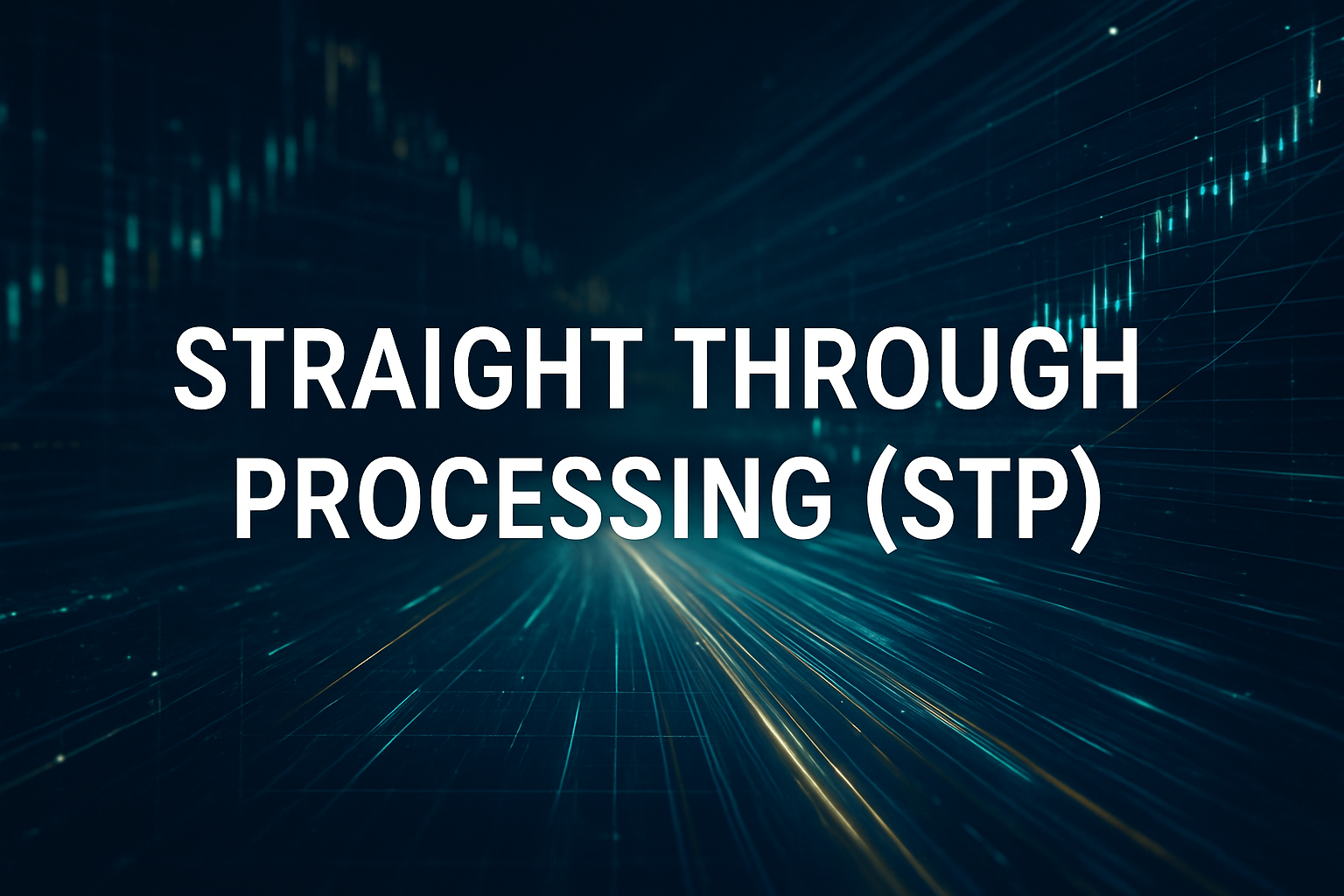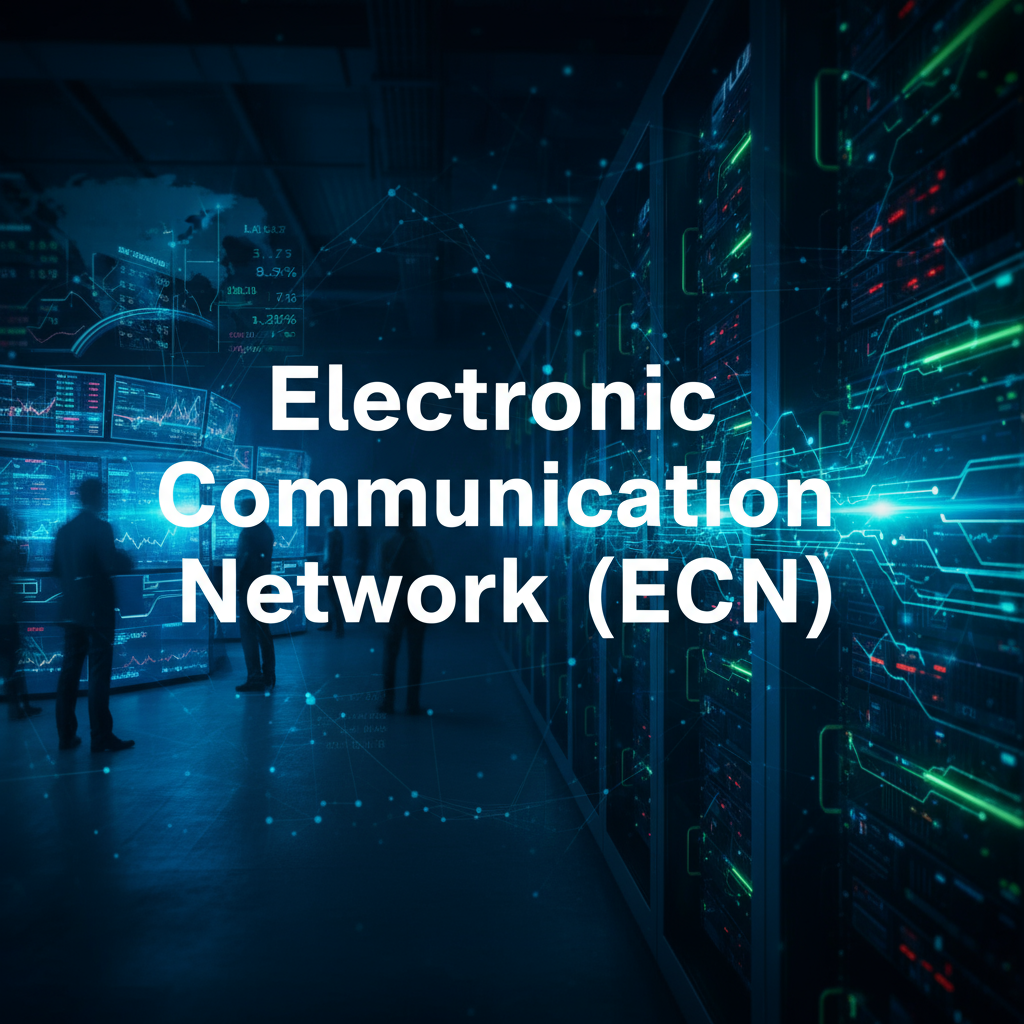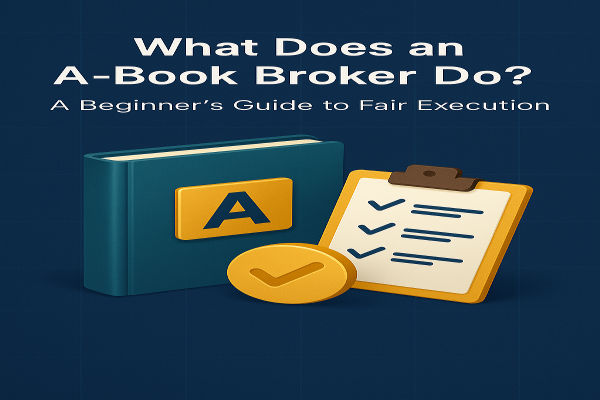Non-Dealing Desk brokers connect traders directly to the real market with transparent pricing, no middlemen, and no conflict of interest.
Introduction
A Non-Dealing Desk (NDD) broker ensures that all trades are executed at real market prices, not against the broker, creating a transparent and conflict-free trading environment.
Instead, NDD brokers use automated systems such as ECN (Electronic Communication Network) or STP (Straight Through Processing) to link traders to liquidity providers such as banks, hedge funds, or financial institutions who fill the orders in real time.
Definition
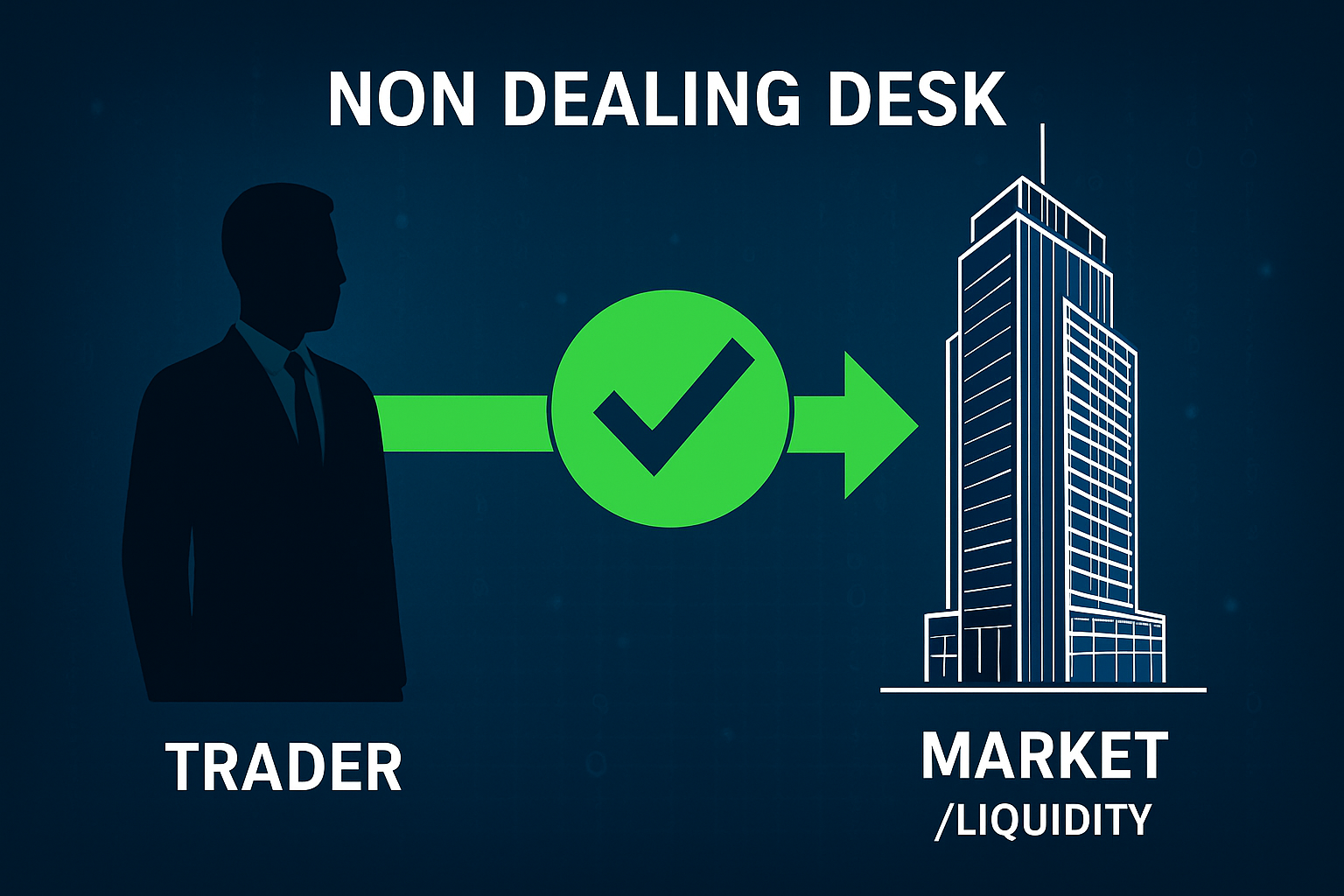 A Non-Dealing Desk broker is a type of broker that routes client orders directly to external liquidity providers.
A Non-Dealing Desk broker is a type of broker that routes client orders directly to external liquidity providers.
Instead of taking the opposite side of a trade (as a dealing desk does), NDD brokers act as intermediaries, passing trades straight to the interbank market or to liquidity pools.
There are two common types of NDD brokers:
STP (Straight Through Processing): Orders are sent directly to liquidity providers with minimal intervention.
ECN (Electronic Communication Network): Traders’ orders are matched directly with other participants in a decentralized marketplace.
This model eliminates conflicts of interest since the broker’s profit usually comes from commissions or markups on spreads, not from client losses.
How Non-Dealing Desks Work
When a trader places an order with an NDD broker, the system instantly forwards it to several liquidity providers to find the best available bid and ask prices. The trade executes automatically and confirmation appears within milliseconds.
To understand how it works step-by-step:
You place a buy or sell order on your trading platform.
The NDD broker receives the order and sends it to its network of liquidity providers.
Each provider returns a bid and an ask price for the instrument.
The system selects the best available price for your side (best ask for buys, best bid for sells).
The trade executes at that price and you receive an instant confirmation.
This process ensures fair execution and market-based pricing, without manipulation or requotes.
Example
A trader in Hong Kong uses an NDD broker to sell GBP/JPY at 187.30. The broker’s STP system routes the order to several liquidity providers such as HSBC, MUFG, and Deutsche Bank and finds the best available bid price.
The trade executes instantly at 187.30, and the broker earns a small markup of about 0.2 pips. The broker doesn’t act as the counterparty, meaning there’s no conflict of interest where the trader’s loss or gain doesn’t affect the broker’s revenue.
During periods of high volatility, spreads may widen slightly since they reflect actual market conditions.
Unlike a dealing desk or B-Book model, the NDD broker does not profit if the trader loses, they simply earn a small commission or markup on the spread.
Advantages / Benefits | Disadvantages / Risks
| Advantages / Benefits |
Disadvantages / Risks |
| Transparent, conflict-free execution |
Spreads may widen during high volatility |
| Direct access to real market prices |
Commission fees slightly increase cost per trade |
| No dealing desk or order manipulation |
Slippage possible in thin markets |
| Trusted by algorithmic and institutional traders |
Variable spreads reflect live conditions |
Related Terms
Dealing Desk: A broker model that processes orders internally, often acting as the counterparty.
Market Maker: A broker that provides liquidity by taking the opposite side of client trades.
ECN Broker: A type of NDD that connects traders directly with other market participants.
STP Broker: A type of NDD that routes orders straight to liquidity providers without a middleman.
Frequently Asked Questions (FAQ)
1. Do Non-Dealing Desk brokers trade against clients?
No. NDD brokers simply route trades to the interbank market or liquidity providers, meaning there’s no conflict of interest.
2. Are NDD brokers more expensive?
They may charge small commissions or offer variable spreads, but traders benefit from fair pricing and transparent execution.
3. Which traders use Non-Dealing Desk brokers?
Non Dealing Desk is preferred by scalpers, day traders, and institutions that rely on real-time execution and minimal broker interference.
Summary
In short, a Non-Dealing Desk (NDD) broker connects traders directly to liquidity providers or the interbank market, eliminating conflicts of interest. Using ECN or STP technology, these brokers ensure faster, fairer, and more transparent execution based on real market prices.
Although spreads can vary during volatile periods, NDD brokers remain a top choice for traders seeking honesty, efficiency, and reliability in execution.
Disclaimer: This material is for general information purposes only and is not intended as (and should not be considered to be) financial, investment or other advice on which reliance should be placed. No opinion given in the material constitutes a recommendation by EBC or the author that any particular investment, security, transaction or investment strategy is suitable for any specific person.
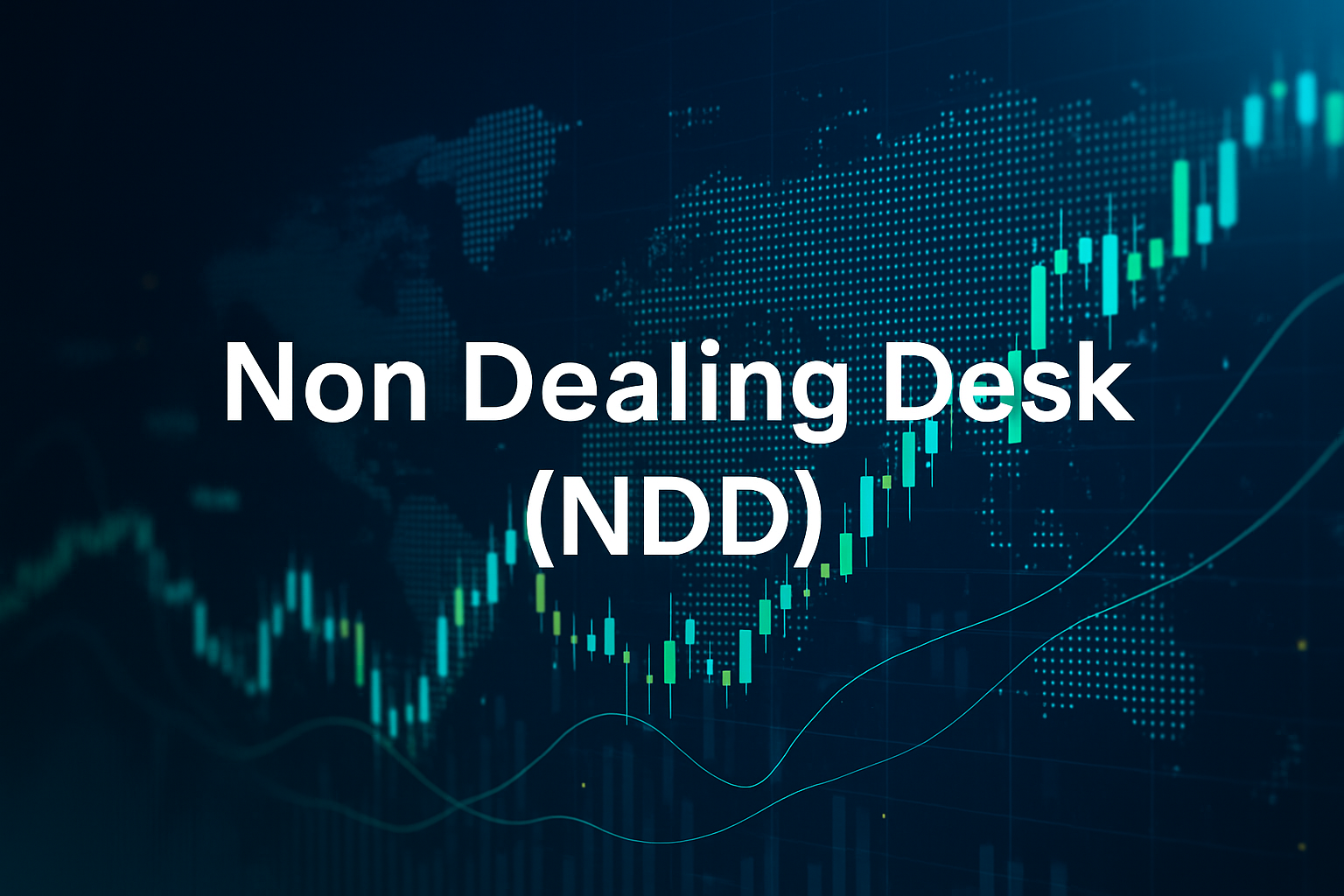


 A Non-Dealing Desk broker is a type of broker that routes client orders directly to external liquidity providers.
A Non-Dealing Desk broker is a type of broker that routes client orders directly to external liquidity providers. 







